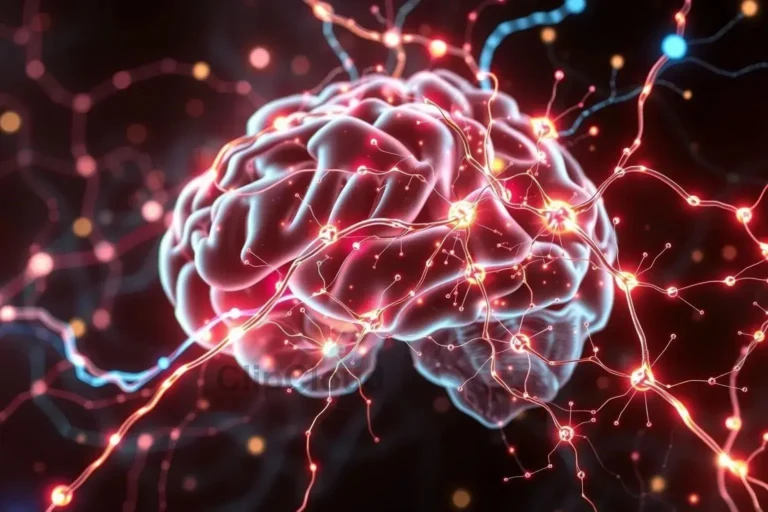Understanding Stress and its Impact
Stress, a natural human response, arises from demands exceeding our perceived resources. It manifests physically (e.g., muscle tension, headaches), emotionally (e.g., irritability, anxiety), and behaviorally (e.g., changes in sleep, appetite). Understanding its impact is crucial. Chronic stress can weaken the immune system, increase blood pressure, and contribute to various health problems. Recognizing your stressors and their effects is the first step towards effective management and cultivating overall well-being. Learn to identify your body’s unique stress signals.
Developing Emotional Awareness
Emotional awareness, a cornerstone of emotional regulation, involves recognizing and understanding your own emotions as they arise. It’s about tuning into your internal emotional landscape and being able to identify what you’re feeling, the intensity of those feelings, and their potential triggers. This isn’t always easy; many of us have learned to suppress or ignore our emotions, making it difficult to connect with them in the present moment.
Cultivating emotional awareness requires consistent practice and a willingness to turn your attention inwards. Start by simply checking in with yourself throughout the day. Ask yourself: “What am I feeling right now?” Don’t judge or analyze your emotions; simply observe them. Notice the physical sensations associated with different emotions. Does anger manifest as a tightness in your chest? Does sadness feel like a heaviness in your stomach? Connecting physical sensations with emotional states can be a powerful tool for increasing awareness.
Journaling can be an invaluable practice for developing emotional awareness. Take a few minutes each day to write about your emotional experiences. Describe the situations that triggered your emotions, the thoughts that accompanied them, and the physical sensations you experienced. This process helps you to articulate your emotions and gain a deeper understanding of their patterns and triggers. It also provides a safe space to process difficult emotions without judgment.
Mindfulness meditation also plays a crucial role in enhancing emotional awareness. By focusing on your breath and observing your thoughts and feelings without judgment, you cultivate a greater sense of presence and become more attuned to your inner world. Regular meditation practice can increase your capacity to observe your emotions as they arise, rather than getting swept away by them; This creates space between you and your emotions, allowing for more conscious responses.
Furthermore, paying attention to your body language and nonverbal cues can provide valuable insights into your emotional state. Notice your posture, facial expressions, and gestures. Do you tend to slouch when you’re feeling down? Do you clench your fists when you’re angry? These physical manifestations can be powerful indicators of your underlying emotions. By becoming more attuned to your body language, you can gain a deeper understanding of your emotional responses.
Developing emotional awareness is an ongoing journey, not a destination. It requires patience, self-compassion, and a commitment to exploring your inner world. As you become more aware of your emotions, you’ll be better equipped to manage stress, navigate challenging situations, and cultivate healthier relationships. This increased awareness forms the foundation for developing emotional regulation skills, allowing you to respond to your emotions in skillful and constructive ways.
Practical Stress Management Techniques
Managing stress effectively involves a multifaceted approach that addresses the mind, body, and spirit. Implementing practical techniques can significantly reduce stress levels and enhance overall well-being. These techniques offer tangible strategies to navigate daily pressures and cultivate resilience.
Physical Activity: Engaging in regular exercise is a powerful stress reliever. Physical activity releases endorphins, natural mood boosters that have calming and pain-relieving effects. Whether it’s a brisk walk, a yoga class, or a dance session, find an activity you enjoy and make it a regular part of your routine. Aim for at least 30 minutes of moderate-intensity exercise most days of the week.
Mindfulness and Meditation: Practicing mindfulness and meditation can help calm the mind and reduce stress hormones. These techniques involve focusing on the present moment without judgment, allowing you to observe your thoughts and feelings without getting carried away by them. Even a few minutes of daily mindfulness practice can make a significant difference.
Deep Breathing Exercises: Deep, slow breaths can activate the body’s relaxation response, counteracting the effects of stress. When you’re feeling overwhelmed, take a few moments to practice diaphragmatic breathing. Inhale deeply through your nose, allowing your belly to expand, and exhale slowly through your mouth. This simple technique can quickly calm your nervous system.
Healthy Diet: Nourishing your body with a balanced diet can improve your resilience to stress. Focus on whole, unprocessed foods, including fruits, vegetables, lean proteins, and whole grains. Limit processed foods, sugary drinks, and excessive caffeine, as these can exacerbate stress symptoms. Staying hydrated is also crucial for managing stress.
Prioritization and Time Management: Effective time management and prioritization can help you feel more in control of your schedule and reduce feelings of overwhelm. Create a to-do list, break down large tasks into smaller, manageable steps, and learn to delegate when possible. Prioritize the most important tasks and avoid overcommitting yourself.
Sleep Hygiene: Adequate sleep is essential for managing stress and maintaining overall well-being. Establish a regular sleep schedule, create a relaxing bedtime routine, and ensure your bedroom is dark, quiet, and cool. Avoid screen time before bed and limit caffeine and alcohol intake in the evening. Aim for 7-9 hours of quality sleep each night.
Social Connection: Strong social connections can provide support and buffer against the negative effects of stress. Spend time with loved ones, engage in activities you enjoy with friends, and consider joining a social group or club. Connecting with others can provide a sense of belonging and reduce feelings of isolation.
Creative Outlets: Engaging in creative activities can be a powerful way to express emotions, reduce stress, and enhance well-being. Whether it’s painting, writing, playing music, or gardening, find a creative outlet that you enjoy and make time for it regularly. Creative expression can be a therapeutic and fulfilling way to manage stress.
Cultivating Emotional Regulation Skills
Emotional regulation involves managing and responding to emotions in healthy and constructive ways. It’s not about suppressing or ignoring emotions, but rather about developing the ability to navigate them effectively. This involves understanding your emotional triggers, developing coping mechanisms, and cultivating a sense of emotional resilience.
Cognitive Reframing: This technique involves challenging negative thought patterns and replacing them with more balanced and realistic ones. When faced with a stressful situation, ask yourself: “Is this thought truly accurate?” “Are there other ways to interpret this situation?” Reframing negative thoughts can shift your perspective and reduce emotional reactivity.
Acceptance and Self-Compassion: Practicing acceptance involves acknowledging and validating your emotions without judgment. Recognize that it’s okay to feel a range of emotions, even uncomfortable ones. Treat yourself with kindness and understanding, especially during challenging times. Self-compassion can create a sense of inner peace and reduce emotional distress.
Assertive Communication: Expressing your needs and boundaries in a clear and respectful manner can help you manage emotions and navigate interpersonal conflicts effectively. Assertive communication involves stating your opinions and feelings directly, while also respecting the perspectives of others. This can reduce feelings of frustration and resentment.
Problem-Solving Skills: Developing effective problem-solving skills can empower you to address challenging situations proactively. When faced with a problem, identify the root cause, brainstorm potential solutions, evaluate the pros and cons of each option, and choose the best course of action. This can reduce feelings of helplessness and increase your sense of control.
Stress Management Techniques: Implementing practical stress management techniques, such as exercise, mindfulness, and deep breathing, can help regulate emotions and build resilience. These techniques can calm the nervous system, reduce stress hormones, and improve your ability to cope with challenging situations.
Seeking Support: Connecting with supportive individuals, such as friends, family members, or a therapist, can provide valuable emotional support and guidance. Talking about your feelings and experiences with someone you trust can help you process emotions, gain new perspectives, and develop coping strategies. Don’t hesitate to reach out for professional help if needed.
Self-Care Practices: Prioritizing self-care is essential for emotional regulation and overall well-being. Engage in activities that nourish your mind, body, and spirit, such as spending time in nature, pursuing hobbies, or practicing relaxation techniques. Taking care of your physical and emotional needs can enhance your ability to manage stress and regulate emotions effectively.
Cultivating emotional regulation skills is an ongoing process that requires patience, self-awareness, and a commitment to personal growth. By developing these skills, you can navigate life’s challenges with greater ease, resilience, and emotional well-being. Remember that setbacks are a natural part of the learning process. Be kind to yourself and celebrate your progress along the way.






